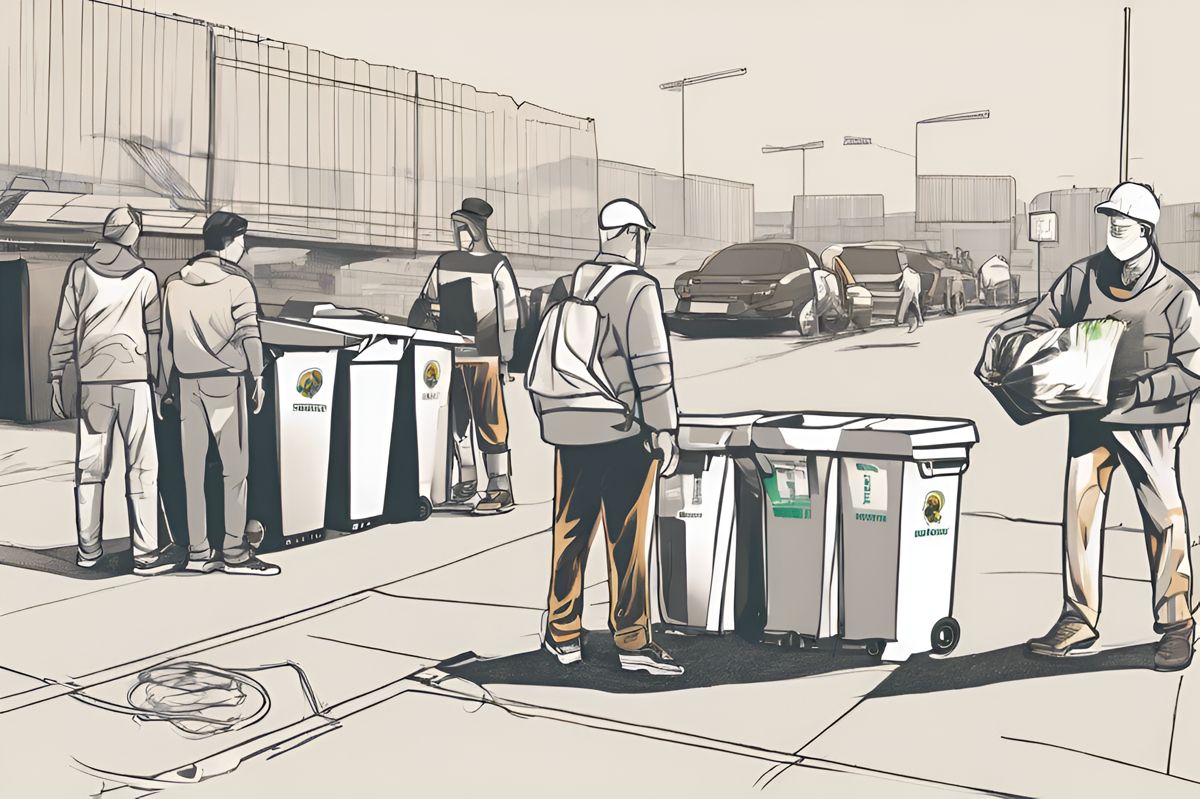Leeds City Council’s crackdown on fly tipping has resulted in a commendable 15% reduction in reported incidents, thanks to the efforts of a specialized environmental crime team. Strategies such as prosecuting offenders, crushing involved vehicles, and promoting resident participation and vigilance in waste disposal have been effective in addressing the issue. The council provides resources like waste sites and guidelines to ensure proper waste disposal practices. Residents are urged to do their part in maintaining the cleanliness and environmental integrity of their city.
How has Leeds City Council successfully reduced fly tipping incidents?
Leeds City Council’s crackdown on fly tipping includes a 15% reduction in incidents due to a specialized environmental crime team’s efforts. Successful strategies involve prosecuting offenders, crushing involved vehicles, and encouraging resident participation and vigilance in waste disposal. The council provides resources like waste sites and guidelines to ensure proper disposal practices.
Leeds Sees Significant Reduction in Fly Tipping Incidents
In the ongoing battle against fly tipping, Leeds City Council has emerged as a proactive force. The government’s annual fly tipping statistics, released this week, highlight a commendable 15% reduction in reported fly tipping incidents within Leeds for the 2022/23 period. This is a stark contrast to the national average, which only saw a 1% decrease. The persistence of the council in addressing this challenge has not gone unnoticed, as fly tipping continues to affect various neighbourhoods across the city.
The positive trend in Leeds is attributed to the establishment of a serious environmental crime team in 2022. This specialized unit within the council was formed with a clear directive: to identify, investigate, and prosecute large-scale environmental crimes, primarily those involving organized fly tipping activities. The council’s focus on repeat offenders and the illegal waste carriers, who contribute substantially to this issue, has been a game-changer.
Since the inception of the team in 2021, there has been significant progress in legal actions against offenders. A total of 34 court cases have been successfully pursued, with outcomes including custodial sentences and hefty fines. These punitive measures aim to deter future violations and demonstrate the council’s firm stance on environmental crime. In parallel, the efforts have also resulted in tangible actions against the vehicles involved in these crimes, with 10 being crushed in the last year.
The Council’s Strategy and Resident Participation
The council’s approach to tackling fly tipping is multifaceted and heavily reliant on community involvement. Councillor Mohammed Rafique, the executive member for climate, energy, environment, and green space, expressed pride in the council’s efforts and gratitude towards the participating residents. These residents have been instrumental, not only in properly managing their waste but also in providing crucial information leading to the tracking and conviction of offenders. Rafique’s statement reflects the council’s determination and the importance of resident collaboration in this endeavor.
“We have been clear that we will always take swift action to limit the ability of criminals to fly tip in Leeds,” says Councillor Rafique, emphasizing the council’s proactive enforcement and preventative stance. The recent government data serves as a testament to the efficacy of these measures. However, there’s no room for complacency. The council continues to send a stern warning to those engaged in environmental crimes, stressing the certainty of prosecution for such acts.
Residents are advised to be diligent in managing their waste disposal. The council has provided a list of measures residents should take to ensure their waste does not contribute to the problem. These include verifying the credentials of waste carriers, understanding the disposal process, and obtaining proper documentation from the service providers. By taking these steps, residents can not only avoid potential fines or prosecutions but also play a critical role in maintaining the cleanliness and environmental integrity of their city.
Available Resources and Council Services for Waste Disposal
Leeds City Council has made several resources available to residents to assist in lawful and environmentally friendly waste disposal. These resources are designed to make it easier for residents to partake in the solution to fly tipping. The council operates eight household waste and recycling sites that are open to the public seven days a week throughout the year. Utilizing these sites allows residents to dispose of their household waste responsibly and at no cost.
The council’s guidelines emphasize the importance of using accredited waste carriers and provide links to check waste carrier licenses. Residents are encouraged to inquire about the waste disposal process and obtain the necessary details of any service they use. This vigilance is a crucial part of Leeds’ strategy to reduce illegal dumping and maintain its streets and green spaces.
In conclusion, the council has outlined a clear and structured approach to dealing with waste. The residents of Leeds are obliged to dispose of their waste legally, which includes using accredited waste carriers, council refuse collection services, or by visiting Household Waste Recycling Centres. The message is clear: through collective effort and individual responsibility, the tide against fly tipping can be turned, leading to a cleaner, safer, and more environmentally responsible Leeds.
- Leeds City Council has achieved a commendable 15% reduction in reported fly tipping incidents.
- Strategies such as prosecuting offenders, crushing involved vehicles, and promoting resident participation have been effective in addressing the issue.
- The council provides resources like waste sites and guidelines to ensure proper waste disposal practices.
- Residents are urged to do their part in maintaining the cleanliness and environmental integrity of their city.
- The council’s approach to tackling fly tipping is multifaceted and heavily reliant on community involvement.
